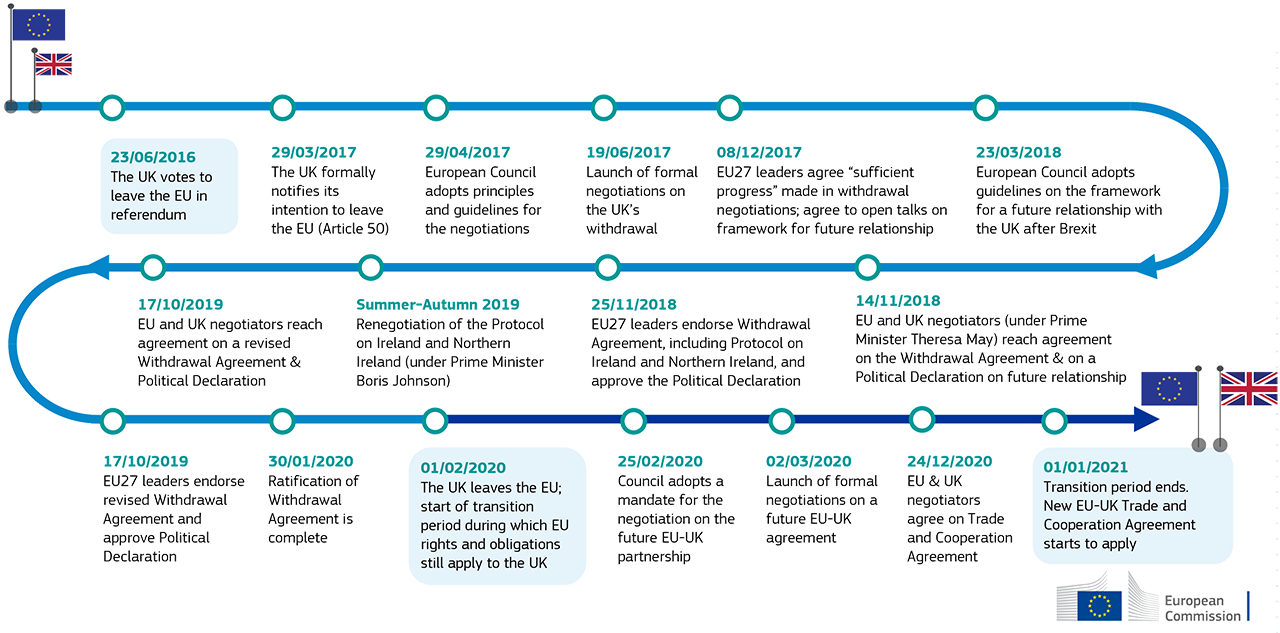The EU-UK Trade and Cooperation Agreement
The Trade Deal Between the EU and the UK
The Trade Deal aims to make trade easier between the United Kingdom (UK) and the European Union (EU) than it would be without such a deal. The deal might cover or eliminate both tariff and non-tariff barriers to trade.
Without a trade agreement in place, UK trade with the EU would be governed by the World Trade Organization's Bali Package. This would lead to common tariffs and non-tariff barriers being imposed by the EU-27 upon the UK's access to the European Single Market, because the Market is also a customs union. However, the UK would then have an opportunity to control immigration as well as develop its own trade regulations.
UK and EU agree on their aim for a free-trade agreement without any restriction on imports or exports, knows as zero tariffs, zero quotas.
During the talks preceding Brexit, some British government ministers said UK would seek to diverge from EU rules and standards. This was confirmed by Johnson, just after Brexit.
The issue of regulatory alignment is that the EU believes that the UK would need to 'closely shadow' EU regulations (on product safety, environmental protection, workers' rights, subsidies, etc.) to permit 'unfettered' trade in goods and services, while the UK declares that it will not do so. The Withdrawal Agreement recognises that standards in Great Britain will diverge in many respects from those in the EU (with consequent loss of trade privileges in these areas), with a special status being accorded to Northern Ireland to keep open the Irish border.





